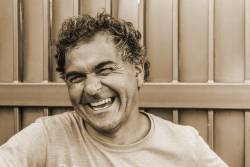
Ray Dalio's Principles Teaches You How to Operate

I can't remember the last time I read a book that is actually written by one of the richest man on earth. I just can't find a way not to love this book, Principles by Ray Dalio, founder of one of the best hedge fund in the last few decades. In his book, Dalio basically tells all his secrets about how to live and how to build a successful business. It's a really long audiobook that I was listening to and he even did about half of the vocal recording himself. In the first half of the book, it was a very beautiful story about how he grew up and how it led him to now operate his life and business with principles. In the second half of the book, he shares his principles for living and building a business. There are some many gems in the book and here are some of the most impactful lessons I have learnt.
"Pain Plus Reflection Equals Progress" - Ray Dalio
This concept appears in a lot of my favorite books, including Mindset, Grit, The Obstable Is The Way, etc. But this direct quote from Dalio is probably one of the best ways to put it. I believe that one of the best ways to get your set of principles is to write them down after you have reached a victory. However, since victories don't happen as often as failures, you should also write down your principles after reflecting on your pain. And if you need to, you can use your role models' principles, for example, Dalio's principles as they are derived from decades of victories and failures.
Write Down Your Own Principles
Everyone should have a different set of principles to live by. Although mine can be very similar to yours, but there should be a portion of my principles that is related to what I want to achieve and the way my mind and my body work. For example, one of my principles may be to always do the important things before the urgent things because that gives me very good results repeatedly. You may have the completely opposite principle and it may works perfectly for you.
Make Decisions Based on Principles
How often can you keep your mind in its most quiet and brilliant mode? I would guess that I am only relatively smart and calm for an hour every day. These are the time that we want our principles to be written down. Then we want to make our decisions based on rules that is written by our smarter selves.
Test and Revise Your Principles
A well tested principle should be changed very often. If a new principle you have doesn't seem to produce the result you want, may be it should be revised or it shouldn't even be here at all.
Use Yourself as a Machine
In the book, Dalio talked about how you should think of yourself as a machine and think about how to design the way the machine operates to achieve your goal. It is one of his principles that is explained in the book and I feel that I should add this principle to my set of principles. I would interpret this concept as working towards your goal without letting your emotion and ego get in the way. Or in other words, act as if you have a strategist you and a executor you. The strategist you should design the best plan to achieve the goal base on the situation including all the people and things involved including yourself. The executor you should just be doing the best job to execute according to the plan.
Don't Make Decisions Based on First-Level Result
If I make decisions based on my first-level result, I should be eating icecream all the time, as the first-level, or immediate, result is that I feel great while eating icecream. The second-level in this case is that I will get fat and unhealthy, which is something that I don't want. So, in a simple case like this, this principle is pretty clear and very easy to apply. But we often forget to apply this principle when it comes to working.
Fix Things at their Root Cause
This principle may sound like something that is way too obvious, but in reality, we often misinterpret what the root cause is. To get to the root cause, you may need to ask yourself why until you reach a level where no possible or relevant questions can be asked.
Be Obsessed with the Truth, Not with Being Right
This principle addresses probably the biggest blind spot to a lot of people, especially smart ones. They are so good in arguing that they can make their ideas sound right even though they are indeed wrong. If you really care about your goal, whether your ideas or arguments are right shouldn't matter at all.
Triangulation is The Best Way to Get The Truth
Sometimes, the truth can be found out from a quick research. But most often, especially when it comes to business and health, it is really hard to know which answer to the one closest to the truth. In these cases, if you get three or more trustable and honest people who have deep knowledge in the topic of the discussion in a room and let them discuss will often let you find out something that is very close to the truth.
Make Decisions by Using Probability (Trustability) and Possible Return when Comparing Options
In the book, Dalio mentioned that his company, Bridgewater, has a trustability score for each staff member (a person can have a high trustability in one category of expertise and a low one in another category). By comparing the rated expected outcome from all of the options, you should be able to make the most logical decision. I will use a simple example to illustrate this concept as the following. Example Scenario: John, Tom and Sam has a different opinion on which company to acquire - John (with trustability 60%) suggests to buy Company A, Company A can generate 10 million dollars in the next 5 years; The rated expected return is 10 million x 60% = 6 million dollars - Tom (with trustability 50%) suggests to buy Company B, Company B can generate 20 million dollars in the next 5 years; The rated expected return is 20 million x 50% = 10 million dollars - Sam (with trustability 80%) suggests to buy Company C, Company C can generate 10 million dollars in the next 5 years; The rated expected return is 10 million x 80% = 8 million dollars Result: Tom's decision has the highest rated expected return of 10 million dollars. So Tom won in that scenario and his decision should be the final decision. Dalio also talked about how a person can increase his trustability by performing well to earn the trust. When I finished reading this book, I remember that this book gave me a similar feeling as Ryan Holiday's The Obstable Is The Way gave me. I felt like and I still feel like that it contains almost all the things that I have learnt from a lot of different books with some additional gems. Before reading this book, I had some very loosely structured rules in my mind that help me operate at work. After reading the look, I have basically written down principles that have repeatedly given me some minor victories. I have also added my favorite principle from this books, which is to think of myself as a machine, and this little gem right here has so far helped me think a lot more clearly.













